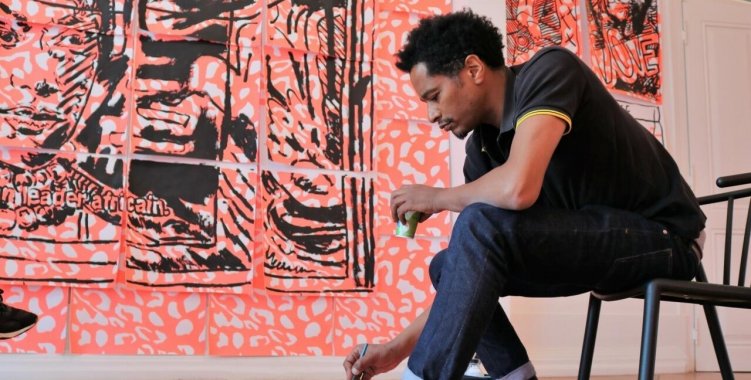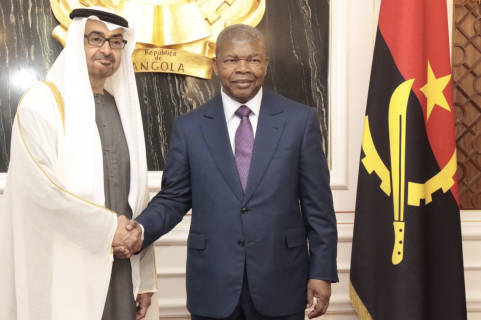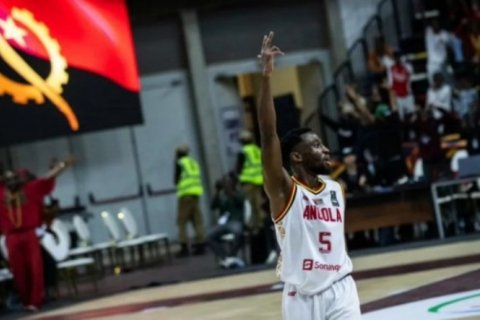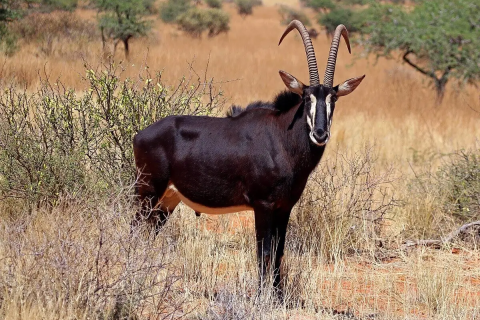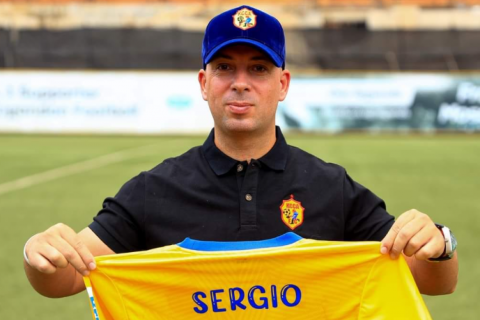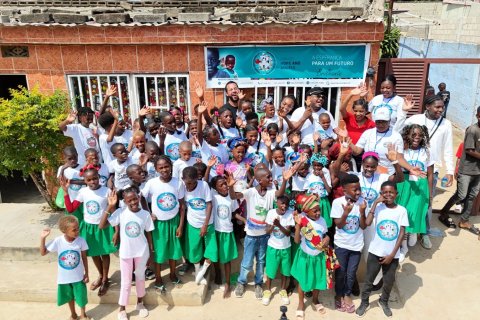“We have to do this, after 50 years, because there are still brands”, concludes the artist born in Lisbon, in 1978, after the Carnation Revolution, as he makes a point of highlighting, in an interview with the Lusa agency, regarding the anniversary .
Francisco Vidal – whose painting is dominated by bright colors and calligraphic lines that give it movement – feels that he is, at the same time, a Portuguese, Angolan and Cape Verdean citizen, as he is a descendant of African parents, who raised him in a “culture of peace ”.
“I was born in a Portugal that goes from Minho to the Algarve, not all the way to Timor, but I am a descendant of a father and a mother who come from other territories that were called colonies”, highlighted the painter who has been interested in discovering the history of anti-colonialist movements, especially in the figure of Amílcar Cabral (1924-1973), a Guinean politician and intellectual, involved in the anti-fascist struggle and against Portuguese colonialism.
Amílcar Cabral, born in Guinea, one of the founders of the then clandestine party PAIGC - African Party for the Independence of Guinea and Cape Verde, was murdered in 1973.
“I was born after the 25th of April, but I study the colonial past a lot because I have to understand where I come from and where I'm going”, commented the artist who in 2014 presented the painting project “Utopia Luanda Machine” at the 56th Venice Biennale , at the Angola Pavilion, curated by António Ole, and also at Expo Milano, curated by Suzana Sousa.
The visual artist considers that even today it is important to “decolonize” the thoughts, emotions and actions of Portuguese society: “We still live, all of us, in a structure that comes from the colonial space, Portuguese, Angolans, Cape Verdeans, Guineans, are - Tomenses, our entire Portuguese-speaking universe thinks in Portuguese. This type of thinking still exists in contemporary Portuguese thought”, he highlights.
“I understand the need to get out of this mentality and understand this colonized mental structure, and bring it to a more conscious present and future”, he argues, remembering a past that “left marks” that “remain alive and active”.
At the Iminente Festival, Francisco Vidal presented a performance with Cape Verdean batucadeiras to remember and honor the actor Bruno Candé, murdered in 2021 in broad daylight, in Lisbon, by a former combatant of the colonial war, which was recorded as an attack of racial hatred .
For the performance, Vidal said he realized that he spoke to the batucadeiras to explain that it was important to do that initiative, “even though Bruno Candé was Guinean and not Cape Verdean”.
“It was only later that I reflected on my need to justify them,” he said, referring to his childhood experiences, and to certain beliefs that remain in the minds of many Africans and people of African descent.
“Recently I was watching the documentary about the colonial war by Joaquim Furtado and I realized that, at that time, there was a strategy by the Portuguese army to 'divide and rule' in the former colonies. The idea, put into practice, was to pit the Guineans against the Cape Verdeans, because they were the ones who, in the colonial space, of the dictatorship, had been instrumentalized so that this space existed in Africa”, pointed out the artist who also uses drawing and facilities at your work.
When he was a child in the 1980s, Francisco Vidal remembers hearing several people tell him that “being the son of an Angolan father and a Cape Verdean mother was a terrible mix”.
“'Your father and mother won't get along, it won't work', they told me. This was and still is a trace of the colonial culture that we have to decolonize” after several decades, argues the artist with a degree in Sculpture from the Escola Superior de Artes e Design das Caldas da Rainha, and who studied Visual Arts at the Escola de Artes Visuais Maumaus, in Lisbon.
Vidal lived for some time in the United States, obtaining a master's degree at the School of Visual Arts at Columbia University, in New York. He began painting professionally in 2000, and exhibiting regularly from 2005 onwards, in individual and group shows, in Lisbon, Luanda, Paris, São Tomé, Johannesburg, São Paulo, London, Macau, Lagos and Chile.
“This anti-guerrilla culture of the Portuguese army, of divide and rule, actually existed in the past. I don't believe that this happens in our culture yet. We no longer want to divide Cape Verdeans to have dominion over them, but there are still remnants of these brands”, he assessed, in an interview with Lusa.
Having been born in Portugal, “in the post-colonial war or war of independence from an African point of view”, and “also being Angolan and Cape Verdean, which is another space of thought”, Francisco Vidal feels that he is, at the same time, “Portuguese, European and African”, cultures on which he has reflected, and which have a historical and political connotation in his work, in which he addresses themes such as the African diaspora, cultural and identity miscegenation, and transcultural currents.
"I don't see any difference between being European or African. I'm completely non-binary, and I see myself as one person. But there are Brazilian artists of African descent who have a completely different idea, because they are closer to African Americans, on the other side of the Atlantic. They say they don't know their past, their family name, their roots. They feel a huge void in filling out their biography", he said.
Francisco Vidal also finds in the Portuguese past linked to the dictatorship a “cult of the unique, of the first, of there being only one, better than all, as in Salazar's time”: “I believe we have this 'Fernando Pessoa syndrome' in our culture ", in the sense of there having to be a reference above all others, greater than all others, "which inhibits artistic culture from growing and evolving, as at the time of the Estado Novo”.
“At the same time, our culture is common, it is ours, shared, and enriched by the different points of view of all these places” in the former colonies, emphasizes the artist whose work is represented in several public and private collections, such as the from the EDP Foundation, the PLMJ Foundation and the Sindika Dokolo Collection.

